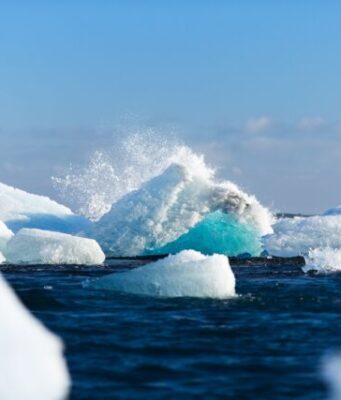A major study into an ancient climate change event that affected a significant percentage of Earth's oceans has brought into sharp focus a lesser-known villain in global warming: oxygen depletion.
The study, just published in the prestigious Proceedings of the National...
University of Wyoming researchers led a study that discovered that biomass smoke originating from South Africa that drifts over the southeast Atlantic Ocean significantly enhances the brightness of low-level clouds there -- creating a reflective process that actually helps...
Imagine if carbon dioxide (CO2) could easily be converted into usable energy. Every time you breathe or drive a motor vehicle, you would produce a key ingredient for generating fuels. Like photosynthesis in plants, we could turn CO2 into molecules...
An urban environment expert at ANU has warned that city councils acting alone to address climate change, in the absence of an evidence-based systems approach, can have unintended consequences.
Professor Xuemei Bai from ANU and other urban experts from around...
The United States could reliably meet about 80 percent of its electricity demand with solar and wind power generation, according to scientists at the University of California, Irvine; the California Institute of Technology; and the Carnegie Institution for Science.
However,...
The ocean around the Galápagos Islands has been warming since the 1970s, according to a new analysis of the natural temperature archives stored in coral reefs.
The finding surprised the University of Arizona-led research team, because the sparse instrumental records...
New University of Colorado Boulder-led research has established a causal link between climate warming and the localized extinction of a common Rocky Mountain flowering plant, a result that could serve as a herald of future population declines.
The new study,...
A NASA study based on an innovative technique for crunching torrents of satellite data provides the clearest picture yet of changes in Antarctic ice flow into the ocean. The findings confirm accelerating ice losses from the West Antarctic Ice...
The individual commitments made by parties of the United Nations Paris Agreement are not enough to fulfill the agreement's overall goal of limiting global temperature rise to less than 2 degrees Celsius above pre-industrial levels. The difference between the...
Heat waves are among the deadliest and most common of environmental extremes. As the earth continues to warm due to the buildup of greenhouse gases, heat waves are expected to become more severe, particularly for cities, where concrete and...
Overwhelming scientific evidence has demonstrated that our planet is getting warmer due to climate change, yet parts of the eastern U.S. are actually getting cooler. According to a Dartmouth-led study in Geophysical Research Letters, the location of this anomaly, known...


















